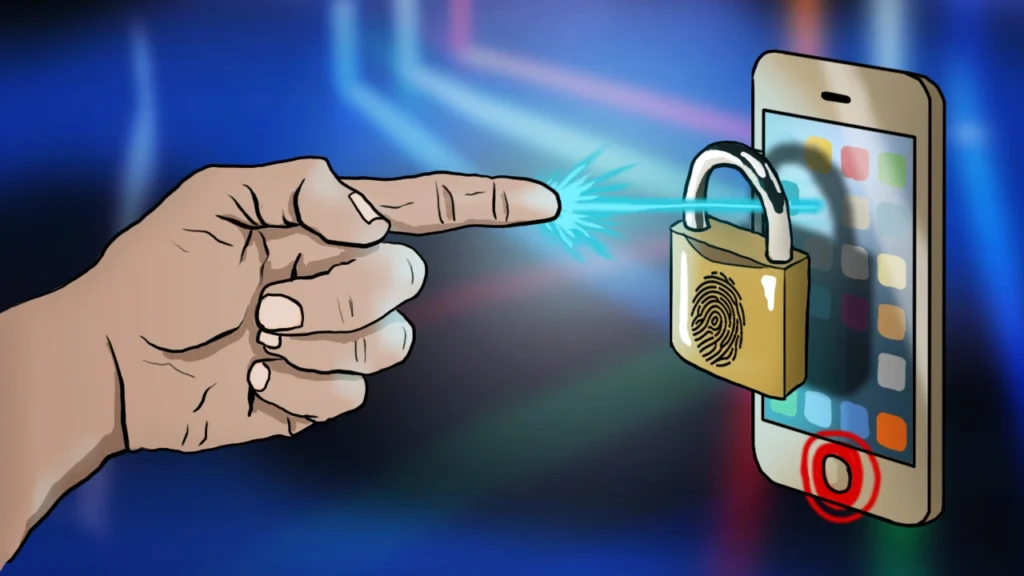iPhone Security: Top Tips & Apps to Protect

In an age where our smartphones hold our most sensitive information, understanding and implementing robust iPhone security measures is paramount. Apple’s iOS is renowned for its security, but it’s not impenetrable. Hackers are constantly evolving their tactics, and users must be proactive to protect their digital lives. This guide will delve into essential security practices, recommended apps, and how to safeguard your iPhone from prying eyes.
Understanding iPhone Security Threats
Before implementing protective measures, it’s crucial to understand the threats your iPhone faces.
- Spyware: Malicious software designed to secretly monitor your activity. This can include tracking your location, reading messages, and even recording audio and video.
- Phishing Attacks: Deceptive attempts to steal your personal information, such as passwords and credit card details, through fake emails, messages, or websites.
- Malware: Though less common on iOS than on other operating systems, malware can still infiltrate your device through vulnerabilities or jailbreaking.
- Unsecured Wi-Fi: Connecting to public Wi-Fi networks without a VPN can expose your data to interception.
- Physical Theft: Losing your iPhone to a thief can result in unauthorized access to your personal information.
Recognizing Spyware on Your iPhone
Detecting spyware can be challenging, but some telltale signs include:
- Unusual battery drain.
- Increased data usage.
- Unexpected app crashes.
- Strange sounds during calls.
- Unfamiliar apps appearing on your device.
If you suspect spyware, it’s crucial to take immediate action, such as updating your iOS, changing passwords, and potentially performing a factory reset.
Essential iPhone Security Practices
Now, let’s explore practical steps to enhance your iPhone security.
- Strong Passcodes and Face/Touch ID: Use a complex passcode (at least six digits) and enable Face ID or Touch ID for biometric authentication.
- Regular iOS Updates: Apple frequently releases updates that include security patches. Keeping your iOS up-to-date is crucial.
- Two-Factor Authentication (2FA): Enable 2FA for your Apple ID and other critical accounts. This adds an extra layer of security by requiring a verification code in addition to your password.
- For Apple ID recovery if you are locked out, see this guide: Apple ID Password Reset Quick Recovery Guide
- Limit App Permissions: Review and restrict app permissions, such as access to your location, camera, and microphone.
- Use a VPN: A Virtual Private Network (VPN) encrypts your internet traffic, protecting your data from interception, especially on public Wi-Fi.
- Be Cautious of Links and Attachments: Avoid clicking on suspicious links or opening attachments from unknown senders.
- Enable “Find My iPhone”: This feature allows you to locate, lock, or erase your device remotely if it’s lost or stolen.
- Regular Backups: Back up your iPhone regularly to iCloud or your computer. This ensures you can restore your data if your device is compromised. Learn more about secure backups here: iPhone Backup Secure Your Data Effortlessly
- Secure your location data: Be aware of who has access to your location and use tools to easily share your location when needed. Drop a Pin on iPhone Easy Location Sharing
Best Security Apps for iPhone
While iOS offers built-in security features, certain apps can provide additional protection.
- Authenticator Apps:
- Authy: A popular 2FA app that syncs your codes across multiple devices.
- Google Authenticator: A straightforward and reliable 2FA app.
- These apps are essential for adding an extra layer of authentication. They are the best authenticator app for iphone, and must be used.
- VPN Apps:
- NordVPN: Known for its strong encryption and fast speeds.
- ExpressVPN: Another top-rated VPN with a user-friendly interface.
- Using a VPN is a vital part of your cyber security for iphone.
- Password Managers:
- 1Password: Securely stores and manages your passwords.
- LastPass: Another excellent password manager with robust security features.
- Mobile Security Apps:
- While dedicated anti-spyware apps are less common on iOS due to Apple’s sandbox environment, many security apps offer features like VPNs, password managers, and Wi-Fi security checks.
- AVG Mobile Security for iPhone: Offers features like Wi-Fi security scans and identity protection. While full antivirus is not needed on most iphones, having a security suite is never a bad idea.
The Myth of a “Secure Folder” on iPhone
Unlike some Android devices, iPhones don’t have a built-in “secure folder” feature. However, you can achieve similar functionality using:
- Notes App: You can lock individual notes with a password or Face/Touch ID.
- Files App: You can store sensitive files in the Files app and protect them with a passcode.
- Third-Party Apps: Some apps offer encrypted storage for photos, videos, and other files.
There is no native “security folder iphone” or “secure folder in iphone” but there are ways to accomplish the same task.
Addressing Concerns About Hackers and Apple
While Apple has a strong track record of security, no system is entirely immune.
- Apple’s Security Measures: Apple employs robust security measures, including app sandboxing, code signing, and regular security updates.
- Vulnerabilities: Like any software, iOS can have vulnerabilities that hackers may exploit. Apple works diligently to patch these vulnerabilities as quickly as possible.
- User Responsibility: Ultimately, the user plays a crucial role in maintaining iPhone security. By following best practices and staying vigilant, you can significantly reduce your risk of being hacked.
Best iPhone Anti Spyware and iPhone Cyber Security
While dedicated anti-spyware apps are limited on iOS, focusing on overall iPhone cyber security is more effective.
- Use a VPN to protect your online activity.
- Keep your iOS updated to patch security vulnerabilities.
- Be cautious of phishing attacks and suspicious links.
- Use strong, unique passwords for all your accounts.
- Being proactive is the best iphone anti spyware.
Protecting your iPhone requires a multi-layered approach. By understanding the threats, implementing essential security practices, and utilizing reputable security apps, you can significantly enhance your iPhone security. Stay informed, stay vigilant, and keep your digital life secure.


